In order to better understand Gen-Z’s state of mind and life, I decided to ask the people who are most familiar with dealing with them, that is, their teachers. As long as I was back in Beijing, China, I first went back to Beijing Lu Xun High School and Beijing No. 44 High School, where I went to school before, and found my teachers to conduct a survey. However, since the high school students were already on summer holidays, there were fewer staff members at the schools, and only about 20 people answered my questionnaire. My former teacher, Mr Wang, recommended a teacher from North China Electric Power University, and I made an appointment for Friday to conduct the survey.
On Friday, Mr Zhang, a computer science major, showed me around the campus, and I sent the questionnaire to all the teachers and asked them to help me pass it on to others. I also met some students from the computer science major and the robotics club who are studying about running programs, so many of them have the opposite way of thinking about social media than I do. Their first concern when designing a website or programme is how to attract more people to use it, whereas I want to help people spend less time online. And because the information on the Internet changes so quickly, they have to spend a lot of time working on their computers, and for many people this constant pressure to learn can cause them to feel FOMO. This provided me with a new perspective, and I left the contact details of several people for contact afterwards.
The purpose of this survey is to understand the problems and challenges faced by Gen-Z in social media use through a teacher’s perspective. It was hoped that teachers would provide suggestions and strategies on how to guide Gen-Z towards healthier social media use. A total of 112 secondary school and university teachers responded and the results are shown below:
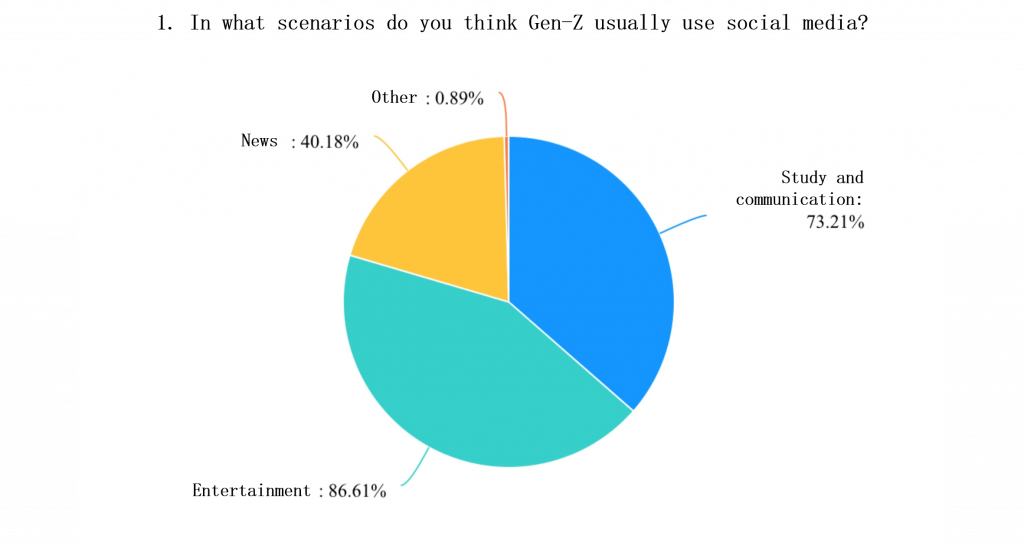
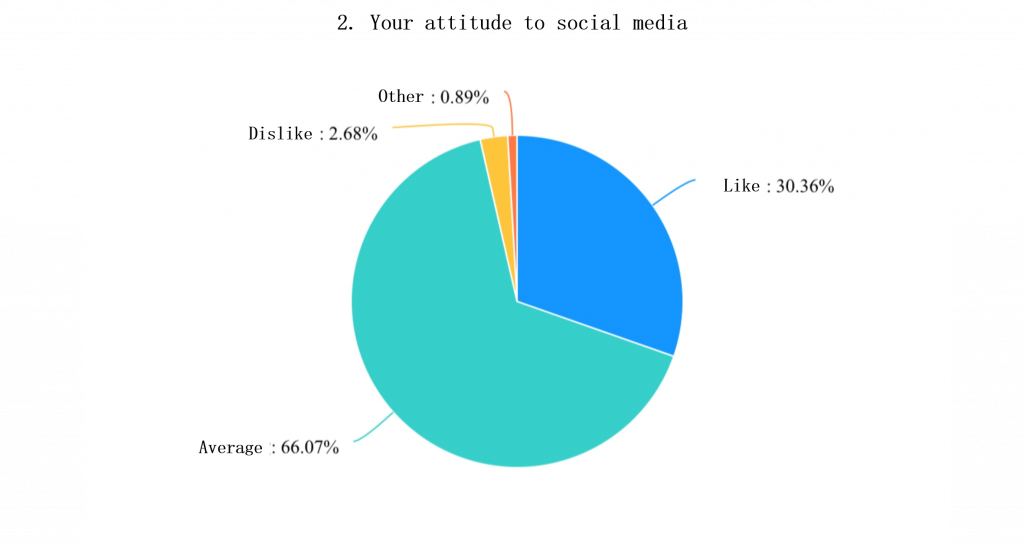
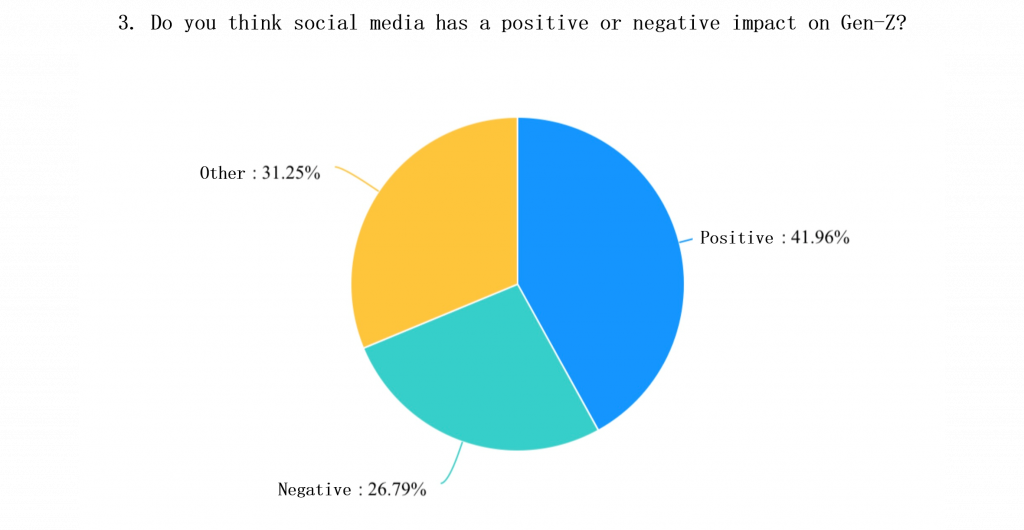
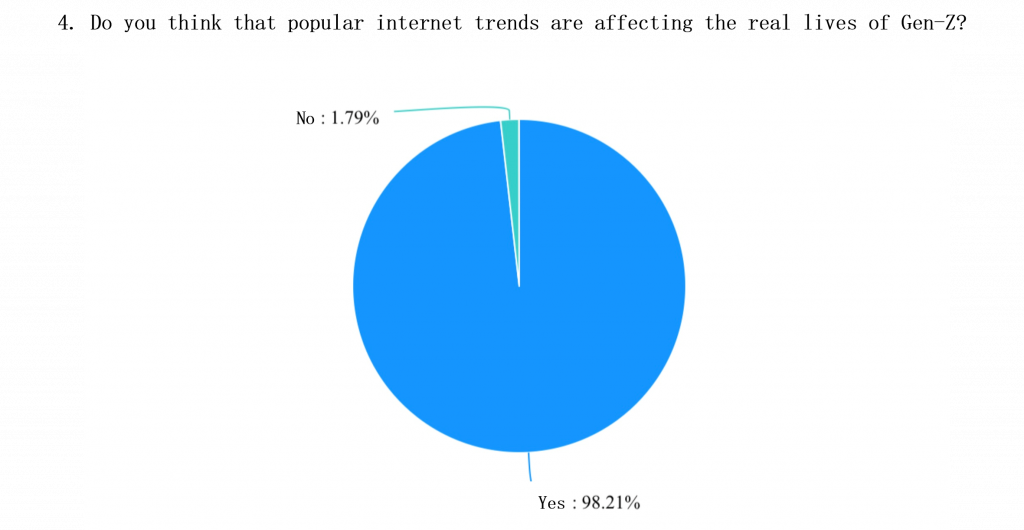
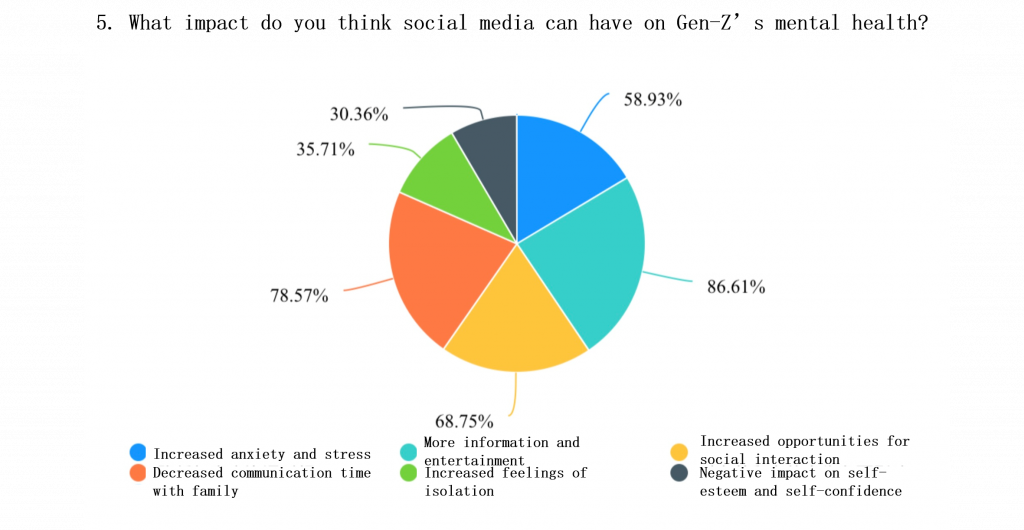
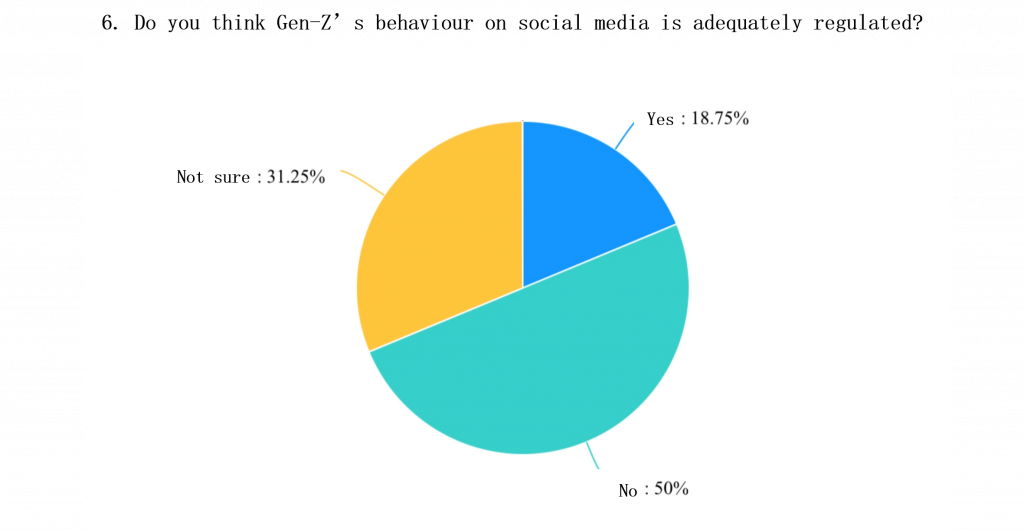
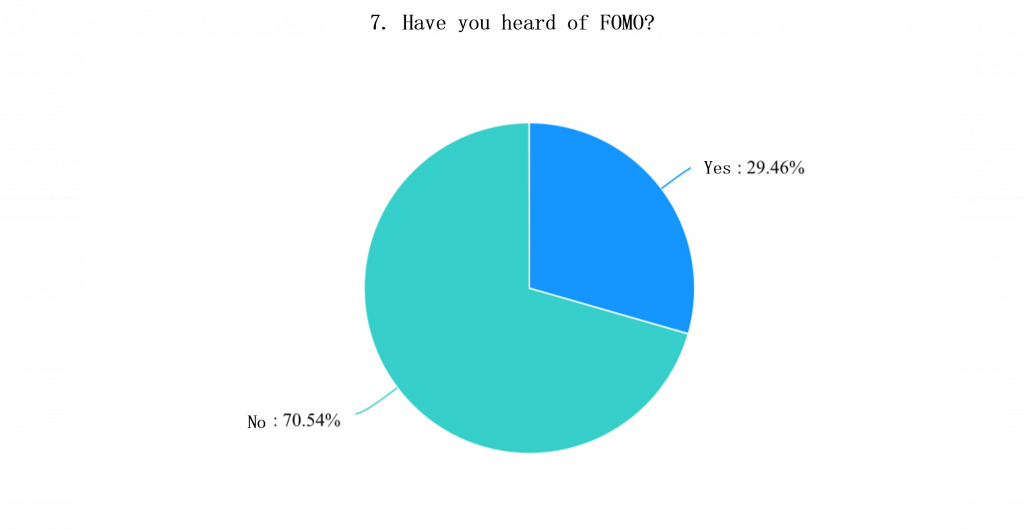
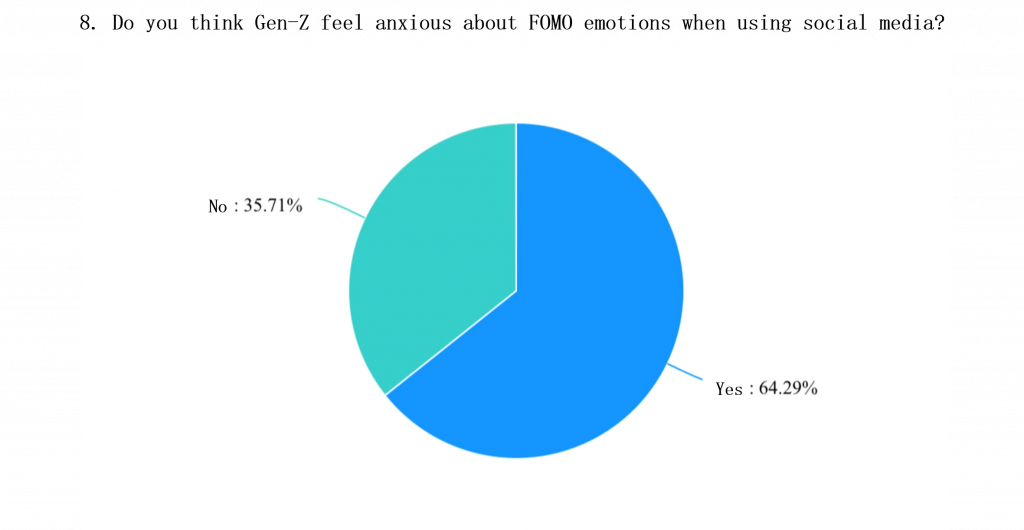
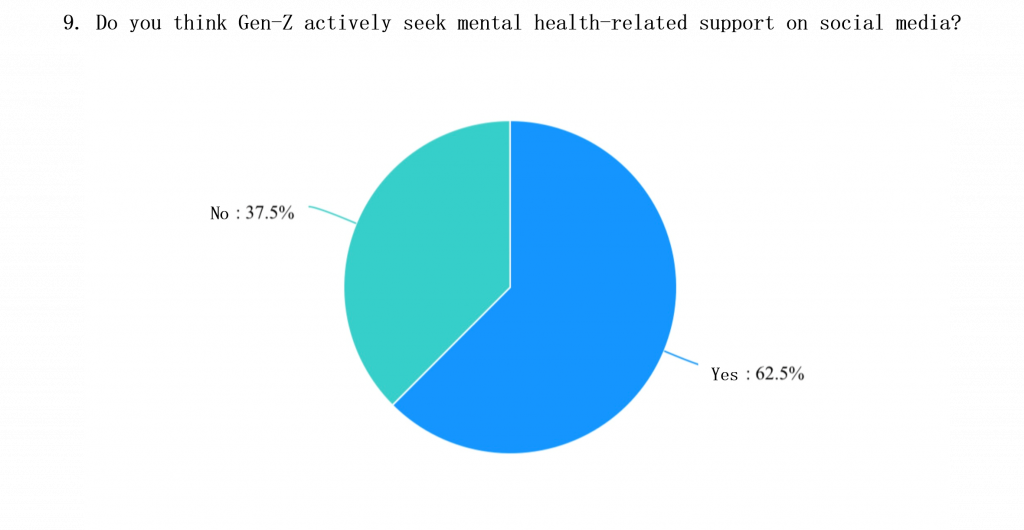
10. What do you think are the reasons why using social media creates anxiety in Gen-Z?
Respondents mentioned information overload, social comparison, and inability to keep up.
11. How do you think Gen-Z should use social media in a healthier way? How to alleviate the anxiety it brings?
Respondents suggested guidance, controlling the time of use, and appropriate use.
12. What do you think parents and schools should do to help Gen-Z use social media properly?
Parents and schools should strengthen guidance and supervision on the proper use of social media by Gen-Z, provide correct information and support, as well as enhance communication and exchange.
In summary, most teachers believe that social media is helpful and has a positive impact on Gen-Z to some extent. The effects of social media on Gen-Z‘s mental health are mainly in the form of increased recreational information and increased opportunities for social interaction, but may also increase anxiety and stress, decrease time spent communicating with family members, and negatively affect self-esteem and self-confidence. Not a large percentage of teachers have heard of FOMO compared to students, so it may be important for parents and teachers to be aware of FOMO-related knowledge as well. Most people believe that online trends have an impact on Gen-Z‘s real lives and their behaviour on social media is not adequately regulated and guided.